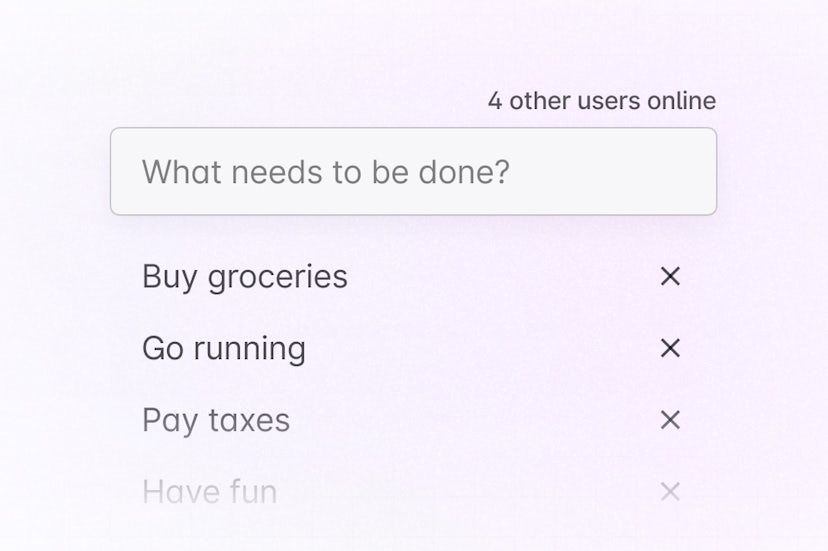Quickstart - Get started with Liveblocks and JavaScript
Liveblocks is a realtime collaboration infrastructure for building performant
collaborative experiences. Follow the following steps to start adding
collaboration to your JavaScript application using the APIs from the
@liveblocks/client package.
Quickstart
Install Liveblocks
Every package should use the same version.
TerminalInitialize the
liveblocks.config.tsfileWe can use this file later to define types for our application.
TerminalSet up the Liveblocks client
The first step in connecting to Liveblocks is creating a client which will be responsible for communicating with the back end.
room.jsJoin a Liveblocks room
Liveblocks uses the concept of rooms, separate virtual spaces where people collaborate. To create a realtime experience, multiple users must be connected to the same room.
room.jsUse the Liveblocks methods
Now that we’re connected to a room, we can start using Liveblocks subscriptions. The first we’ll add is
others, a subscription that provides information about which other users are connected to the room.index.jsNext: set up authentication
By default, Liveblocks is configured to work without an authentication endpoint where everyone automatically has access to rooms. This approach is great for prototyping and marketing pages where setting up your own security isn’t always required. If you want to limit access to a room for certain users, you’ll need to set up an authentication endpoint to enable permissions.
Set up authentication
What to read next
Congratulations! You now have set up the foundation to start building collaborative experiences for your JavaScript application.
